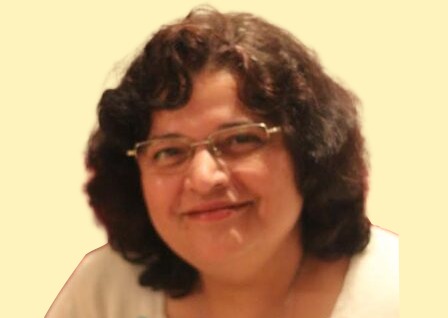John Hoffmire: You are the founder of the RISE Infinity Foundation. Tell me more about this social enterprise.
Karon: I started the RISE Infinity Foundation in 2014 as an organization committed to serve those in India who are vulnerable, poor, and sick. Our vision is to create a more responsible, inclusive, sustainable, and eco-friendly society that will meet the immediate needs of those who are challenged and underserved. We work with a multi-stakeholder, multi-sectoral approach using the four values I just mentioned to ensure that we look at community development as inter-related and not in a mutually exclusive manner.
John: The work you do in communities focuses on which areas?
Karon: The foundation mostly focuses on seven main areas: health, education, livelihood, environment, women empowerment, disability, and citizenship training – all of which intersect and overlap.
John: Give me an example of some of the projects the foundation supports?
Karon: We have several but I’ll start with one of the most recent initiatives related to the pandemic. As the nodal partner of the Maha PECONet initiative convened by UNICEF, Rise Infinity Foundation has reached out to over half a million people with relief assistance – food, transportation and even cash transfers for medical and other emergencies. The coalition is now focused on recovery measures by mapping their skills and facilitating opportunities for skill development, employment and entrepreneurship. We have signed collaborative pacts with multiple partners to train and upskill over 1000 youth from migrant families impacted by the socio-economic downturn caused by the COVID-19 pandemic. We also plan to upskill another 500 with employment in the banking, financial services, and insurance (BFSI) sector. We have reached out to over 10,000 families to meet specific requirements and hope that members of these families do better financially as wage employees or through self-employment.
Another of the key focus areas I’m passionate about is women empowerment. Here we work to increase women’s professional confidence and success by encouraging and facilitating women-owned enterprises. We have close to 200 women entrepreneurs as our members and we regularly arrange sales of their products through corporate exhibitions. We engage with another 500+ women entrepreneurs for capacity building and linkages.
We also help build green spaces through employee volunteering. We organized a yearly program for persons with disability (PWD) in Delhi to motivate and inspire them to take on challenges and mainstream their activities. Furthermore, we support grassroot organizations across India by providing nutritious midday meals for children. There is still however much to be done.
John: The work of your foundation is remarkable. I am especially happy with how broad and varied the causes you support turn out to be. You also work in the evaluation of social enterprises through the Evaluation Committee of India. Tell me about that.
Karon: Just over four years ago I helped create the Maharashtra Chapter of the Evaluation Committee of India (ECOI), which is a forum for monitoring and evaluation practitioners to learn and share with peers, experts and others interested in measuring impact at the local, regional, national and international level. ECOI strives to be a resource center for evaluations and evaluators. It encourages sound evaluation practices. But it does not bid or undertake any evaluations.
John: We met last year at Oxford. Tell me more about what you were doing there.
Karon: I was part of the 2019 Chevening Research Science and Innovation Leadership Programme (CRISP) at St Cross College at Oxford University. It’s an extraordinary program for mid-career professionals who demonstrate leadership in the fields of science, innovation, and business from India and Sri Lanka. Fellows are offered dynamic training, professional development, and opportunities to spend time at Oxford University researching subject matter that are relevant to their professional interests, as well as to the UK’s international strategic priorities. One of the best parts of the program is the opportunity to build personal friendships and professional networks with the other CRISP fellows and Chevening alumni globally.
John: I remember being impressed when I met you last year with the social impact work you are doing and I’m impressed again as I’ve learned more through this interview. Thank you for talking with me.
Karon: Thank you, John. You are part of the wonderful professional network that I treasure and came to know through my time as a CRISP fellow.
Karon Shaiva is the Chief Impact Officer, IDOBRO and Managing Trustee of the RISE Infinity Foundation as well as an alum of the Chevening Research,Science and Innovation Leadership Programme (CRISP) at Oxford (2019)
Interviewer: Dr. John Hoffmire is the Chairman of the Center on Business and Poverty, the Director of Employee Ownership at Teamshares, and Research Associate at the Oxford Centre for Mutual and Co-owned Business





